Going Live
In recent years, artists have shifted from pursuing platinum record sales toward touring revenue. The current practices of downloading, streaming, and sharing music digitally have greatly diminished the sales of physical recordings. Gone is the practice of poring over album jackets to glean insights about artists. Today’s music fans buy tickets and VIP packages in pursuit of a more close-up and experience with fast-rising and iconic performers. Additionally, many more concertgoers buy artists’ merchandise as keepsakes from their concert experience.
Touring is big business for baby-boomer artists—Bruce Springsteen, the Rolling Stones, U2, Cher, and Bon Jovi—as well as younger acts—One Direction, Jay Z and Beyoncé, Lady Gaga, Bruno Mars, Taylor Swift, and others in between. They traverse the globe playing to hundreds of thousands of fans and make a substantial living in the process. This article offers a glimpse behind the scenes of the touring business through the eyes of Berklee alumni who have built their careers in various sectors of that industry.
In What Universe?
Like other alumni spotlighted in this article, Steve Cielinski ’06 entered the touring biz after studies in Berklee’s MB/M department with professor Jeff Dorenfeld—himself a veteran of many tours. “The summer after I graduated, Jeff helped me to get a job as assistant tour manager for Ringo Starr,” Cielinski recalls. “That meant I was carrying luggage, setting up the dressing rooms, and making Ringo’s vegetable juice. It lasted for six weeks, and I loved it! After a summer of touring with Ringo, I knew I wanted to do this.”

“I listened to Paul talk about his songwriting process and thought to myself, ‘In what universe would I ever be a part of something like this?’” —Steve Cielinski ’06
By February 2007, Cielinski had accepted a job with AEG, a leading sports and entertainment presenter, as an assistant to the director of touring at the AEG Live Concerts West division in Los Angeles. “When I started, AEG was doing the Justin Timberlake [Future Sex/]Love Sounds Tour,” says Cielinski. “Leg one was on the road, and we were getting ready for the second leg. Part of my job was to contact all of the arenas we wanted to play and ask for the available dates on their calendars. My boss made a fantasy draft of the tour, and then I sent e-mails back to the arenas to see if we could take those dates.”
Cielinski’s chores also included scaling ticket prices to determine how many would sell at each price point and routing to make sure the tour moved efficiently around the country.
In 2012, he became the director of ticket operations for Marshall Arts USA, another tour buyer. The business model for both companies is to buy and promote all the dates of a given tour nationwide. “We work with one act for six months or a year with all the different venues across the U.S. and Southern Canada,” he says. “We travel with the show, and that provides a level of comfort for the managers and agents, they know how things are going to go each night. If there’s a question about the show in Los Angeles, they just e-mail the same person they did for the show in Saskatoon.”
Describing his responsibilities, Cielinski says he plans budgets and marketing strategies, and more. “I build the shows with the box offices and ticketing company to make sure they have everything programmed correctly,” he says. “If I want 4,000 seats at $89 per ticket, I need to be sure there are actually 4,000 seats at that price. If we are selling a VIP package for rows one through three, the seats need to be in those rows. It’s tedious work, especially when you do it 40 times for a tour.”
Once the show hits the road, Cielinski takes his seating map and familiarizes himself with the venue. He’ll double-check to make sure that speakers don’t block the view for prime seats by the stage. He will also “dress the house” with last-minute seating changes if a show didn’t sell out. Cielinski doesn’t want the artist to look out and see sections with a lot of empty seats.
After the sound check when the crowd begins to enter, he observes whether the audience is made up of families, older couples, or twentysomething kids, and determines whether there will be a rush for last minute tickets. “With Cher’s tour, once she hits the stage, you’re really not going to sell any more tickets,” he says. “Her fans usually planned to stay at a hotel and have dinner before the show. For Paul McCartney, I can release seats that say ‘no view’ on the day of the show and sell 1,000 tickets because people will decide pretty late that they want to go.” After the concert, Cielinski helps settle the show, reconciling expenses and revenue with the box-office staff before moving on to the next city.
Cielinski has toured with many major artists, and one of the coolest parts of his job has been his interaction with many music legends. “One night, around midnight in Winnipeg, three of us—Paul McCartney, his DJ, and I—sat at a quiet table having Indian food. I listened to Paul talk about his songwriting process and thought to myself, ‘In what universe would I ever be a part of something like this?’”
A Matter of Trust
As an events analyst for Montreal-based concert promoter Evenko, Fred Choquette ’12 has worked on big shows for Bruno Mars, Lady Gaga, the Black Keys, and Michael Bublé, to name a few. “Evenko is an independent concert promoter, which is pretty rare these days,” Choquette says. “We do more than 1,000 shows annually in Northeastern Canada. Evenko remains independent because it owns and operates the Bell Centre, the largest arena in Montreal. So if any big act wants to play there, they have to go through us.” When Live Nation bought the Usher tour, it called Evenko to partner so Usher could play at the Bell Centre. Evenko also works with lesser-known acts playing smaller venues in the area with which it has exclusive agreements.
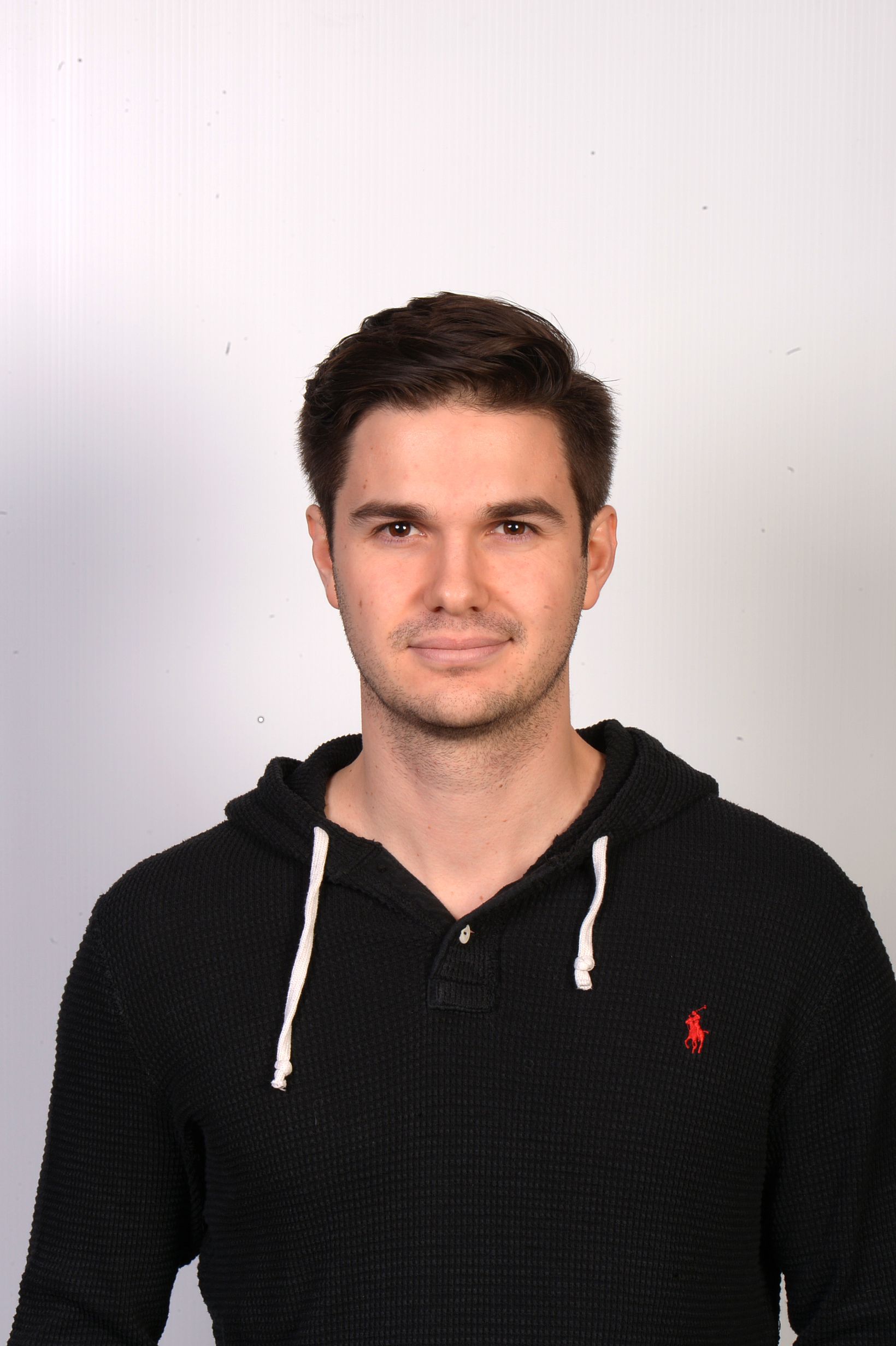
“If the artists are happy the show will be good and then the audience will be happy.” —Fred Choquette ’12
Choquette represents the venue’s interests as he goes over the deals with the artists’ representatives to make sure they are financially viable. “At the arena level, the artist has a guarantee versus a percentage of sales after expenses,” Choquette says. “On the night of the show, it’s important to see which is bigger: the guarantee or expenses. The artist’s representative will want to see what the expenses were and will try to throw some of them out. Every city is different, and stagehand union rates in one city may be a lot more expensive than in another.”
Choquette’s objective is to gain the trust of the artist’s representatives. “That’s hard to do sometimes,” he says. “Generally, when you’re dealing with people who are 40 and under and newer to the business, it’s easier to build trust. The older rock acts from the ’70s and ’80s are very wary because things were different back then, and they’ve encountered some shady characters. If someone doesn’t trust you, they may want to count the ticket stubs at the end of the night because they think you’re trying to shortchange them. Luckily, that’s never happened to me at the Bell Centre, where there are 18,000 seats!
“We had an older, well-known French artist here and his people just didn’t trust me—no matter what I did. I brought them a pre-settle sheet to show them how things were going to look before we started going over the expenses. They took me to their room, where they had the heat cranked up. These three guys sat me in a chair and stood around me drilling me with questions about taxes and various expenses. They used pressure tactics for a half-hour and made me sweat. Settlements can be interesting sometimes, but most of the time we all get along just fine.”
Regarding stories that circulate periodically about the outrageous demands in artist riders that the venues need to fulfill, Choquette is sympathetic to performers. “The high-level artists are on the road four or five months each year and they want the basic things that make them feel at home,” he says. “I’ve settled about 100 arena shows, and I’ve never gotten any really crazy demands. Some people ask for stuff that’s hard to get, but I don’t mind that. If the artists are happy, the show will be good and then the audience will be happy.”
Choquette has gained valuable experience with Evenko, but he is planning to take a hiatus to earn his MBA at Stanford University. “I love the music industry,” he says, “but I don’t know exactly where I’ll end up after [Stanford]. I do know that it will be somewhere in the touring or live-entertainment area.”
Chills Every Night
In a short span of time, Jared Braverman has gone from a Berklee student majoring in music business/management to learning the ropes of the touring industry to vice president of touring at Live Nation, the world’s leading live-entertainment company.
“I love my job,” Braverman says, who hails from Boston but now lives in Los Angeles. “When I first enrolled at Berklee, I knew that this is what I wanted to do. It was just a matter of how I was going to get there.”
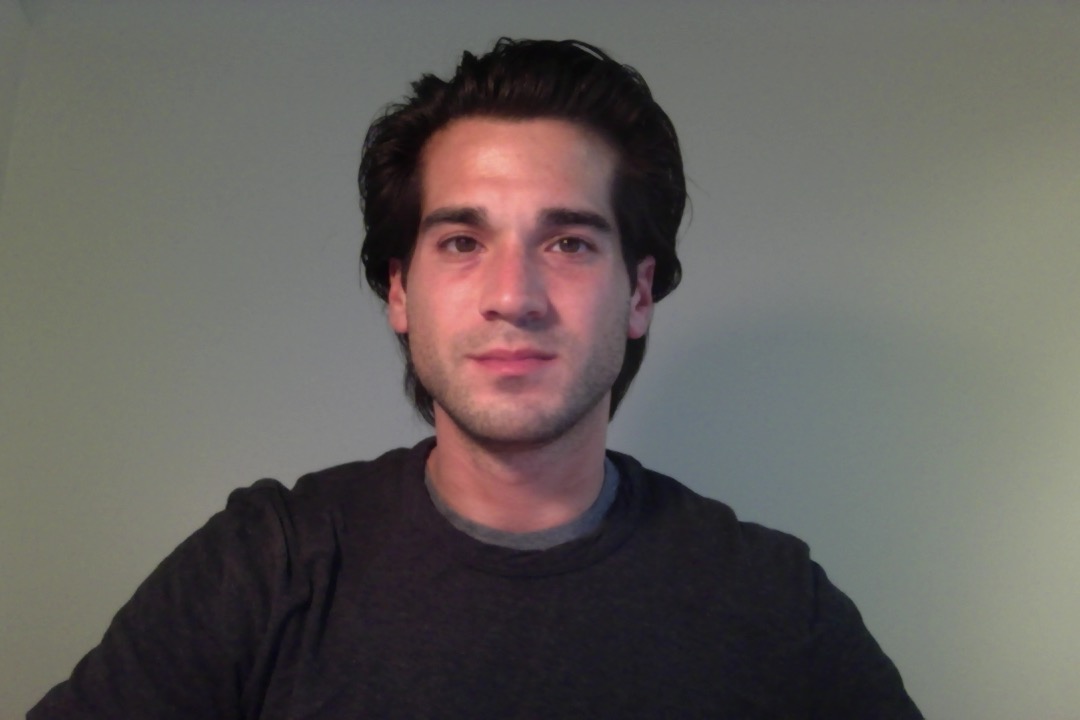
“To me, there is no better feeling than when you’re in an arena and the lights go down and you hear 20,000 people screaming as the act goes onstage.” —Jared Braverman ’07
For Braverman, getting there began with a Live Nation internship while he was still a student at Berklee, the result of an interview he conducted with Arthur Fogel, Live Nation’s CEO of global touring, in fulfillment of an assignment in Jeff Dorenfeld’s Music Intermediaries course. The internship included a touring stint with the Police. Braverman clearly made a great impression: He received a job offer from Live Nation the same day that he moved to Los Angeles to begin his job search after graduation.
He advanced from being an assistant to Fogel to working as a tour director, demonstrating his skill in setting up, executing, and managing tours booked through Live Nation, such as U2’s 2009 tour. Braverman’s work involved routing tours; building business plans; analyzing and modeling costs and revenue; and handling demands related to ticketing, production issues, settlement, and finances.
In his new position—quite possibly the youngest vice president at Live Nation—Braverman is charged with finding and researching acts that Live Nation may want to make tour deals with and negotiating offers with those acts’ agents and managers. In his new capacity, his first task was to book a tour for Lana Del Rey. When booking major tours, Braverman finds the balance between metrics and instinct.
“Just like in the record industry where they’re looking at signing new acts, there’s nothing that tells you definitively whether something’s going to work or not,” he says. “It’s the same when we’re booking acts on tours. For well-established acts, there is a lot of historical data you can pull from, like how many tickets they sold the last time they played each market, what dates they played, and what those tickets were priced at.”
But such data is often unavailable for newer or developing acts, although an artist’s social media following can be an additional asset. In such cases, he says, “You’re looking at a wider scope of information to try to reach a gut feel on where you think this artist is going—everything from their past performances in each market, which are usually going to be smaller shows, to pulling in record sales and streaming data to see where their fans are. At the end of the day, it comes down to whether you believe that artist is growing and going to the next level to be worth the business that you’re putting out in front of them.”
As his career has taken flight, Braverman has seen changes in the touring industry, and a shift from local promoters toward a national or global promoter like Live Nation. He attributes the shift to the evolving nature of the concertgoing experience.
“Nowadays, artists are traveling with really big productions, the shows are a spectacle, and ticket prices are much higher,” he says. “People are hiring babysitters, making hotel arrangements, booking dinner plans for a big night out.”
A lot goes into making those big nights happen. For Braverman, all the hard work is worth it when he witnesses the result. “To me, there is no better feeling than when you’re in an arena and the lights go down and you hear 20,000 people screaming as the act goes onstage. The place just absolutely erupts, and you know that, no matter how big or small, you had something to do with that sound,” Braverman says. “No matter how many shows I’ve worked, that still gives me chills every single night.”
The Money Man
Tour accountant to the stars John Czajkowski ’98, has worked for Bruce Springsteen, Ringo Starr, Shania Twain, and the Black Eyed Peas among others, and he is currently working for Katy Perry. Czajkowski grew up in Windsor, Ontario, Canada, and earned an engineering degree from George Brown College in Toronto and worked in the welding and electronics industries in Germany and Japan before enrolling at Berklee. “I’d been traveling in my previous jobs and thought if I studied music business I might end up working for a record label,” he says.

“A tour accountant needs to understand the people who are out on the road and how they expect to be paid.” — John Czajkowski ’98
But as he was about to complete his studies as a music business major at Berklee, the record business was in turmoil and Czajkowski started rethinking his plan to work for a label. “As I was about to graduate, I spoke with Jeff [Dorenfeld], who told me that with my language skills [in German and Japanese] I’d be a valuable person on the road,” Czajkowski recalls. “That’s how it all started.”
He moved to New York and started working as a production manager for the Jazz at Lincoln Center world tour in 1998. Next, he worked as the road manager for Shania Twain’s Come on Over tour in 1998 and 1999. He started moving toward the money end of things as the tour accountant for a Ringo Starr tour in 2000. “My analytical brain started thinking about the costs involved with tours,” he says. “First, small opportunities and then bigger ones started to come my way.”
As tour accountant, Czajkowski analyzes contracts and budgets. He frequently advises management about the feasibility of adding in a one-off show. “A lot of times, I have to tell them even for a gig that looks like it pays a lot of money, because of the freight and other costs, sometimes an offer doesn’t make sense financially,” he says.
Rather than the work a certified public accountant (CPA) would do, Czajkowski’s job requires a comprehensive knowledge of the touring industry. “It’s not about putting together the artist’s tax returns,” he says, “it’s about the nuts and bolts of the touring side of the business. A tour accountant needs to understand the people who are out on the road and how they expect to be paid. Not many CPAs would be willing to travel, pack road cases and push them down hallways, and do other things that are part of my job. It’s kind of a weird skill set I’ve developed over the years.”
On tour, Czajkowski has daily responsibilities whether or not it’s a show day. “Every Monday I make sure the transportation companies and tour vendors for sound, lights, video, and staging are paid. Every Tuesday I’ll do payroll for the band and crew. Each day is busy,” he says, “but on show days aside from the other stuff, at the end of the evening, we get the box-office settlements in and go over the final invoices for the show. That part is almost routine; the other stuff is more of a wild card.”
In settling the show, Czajkowski looks for mistakes that benefit the artist. “I look at their money as my money,” he says. “So I am looking to manage things wisely and find savings to justify my position. I have been lucky to be part of the crew for a lot of artists who treat me well. That motivates me to do all I can for them.
“The live music industry is one of the strongest revenue streams for artists. If you are interested in the music industry, you have to recognize this. Over the years, I’ve gotten to meet a Beatle and stand in the wings watching Springsteen play in front of thousands of fans, and Liam and Noel Gallagher play a sold-out show in Manchester, [England]. I’ve been fortunate to have a lot of those moments. This—rather than unwrapping a new calculator—is the coolest part of the job!”
Corporate Energy and Support
Stephen Canfield ’07 always wanted to tour with a rock band, though in his vision it was with his guitar. Today, his axe in its case, he travels the United States for festivals and concerts, and works many events near his home in Los Angeles.
“I had an awakening and a realization that it was probably better for me to be working with and supporting musicians rather than being one myself,” Canfield says with a laugh. “That’s something that I feel uniquely able to do working in the career I’m in.”
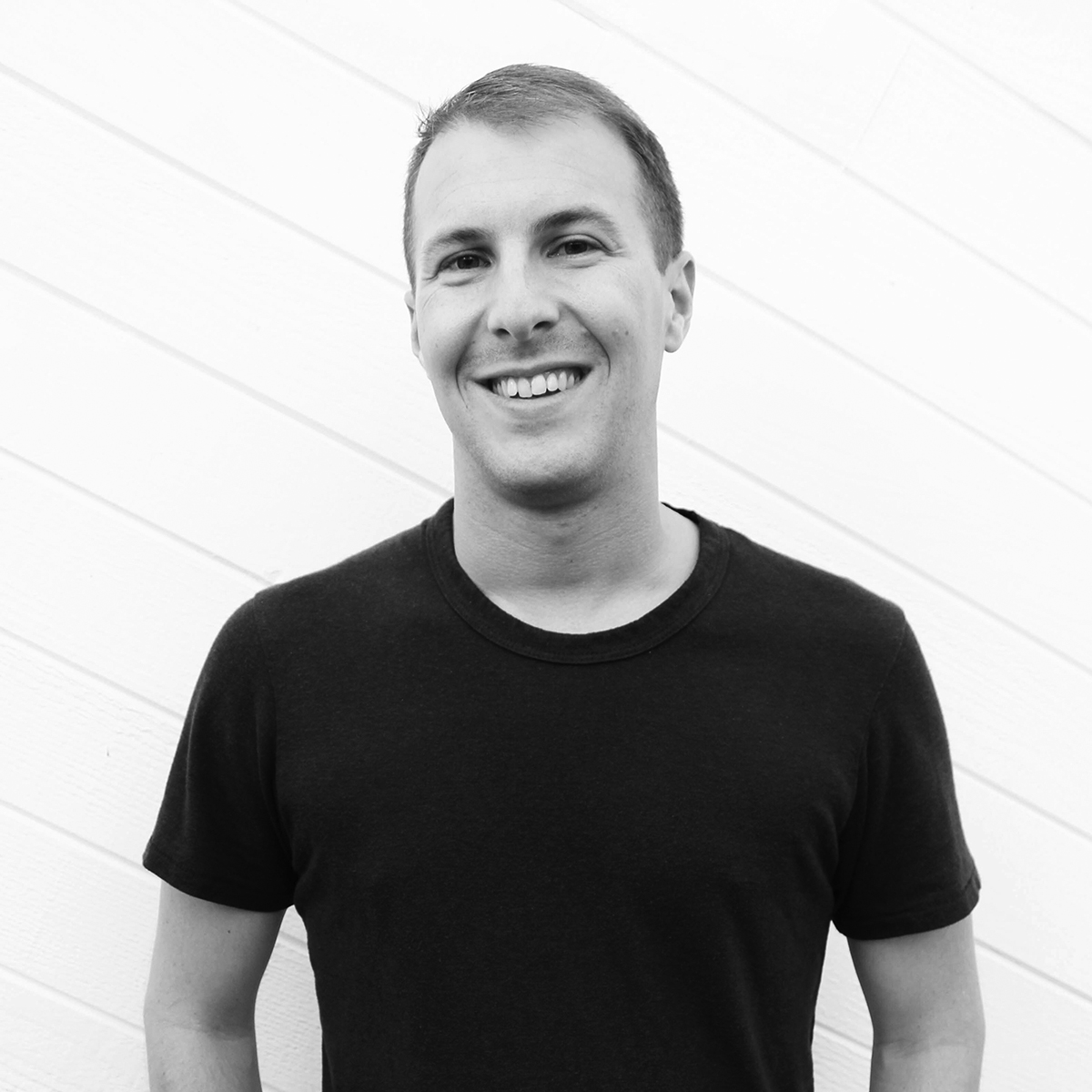
"Corporations can help the touring business as long as they have the right intentions."—Stephen Canfield '07
He is now the national culture manager for Red Bull Sound Select, an artist development program and event series that works to deliver curated new music to fans. The company works with about 40 tastemakers who keep the pulse of the music scene in 14 cities across the United States, Canada, and New Zealand, and identify emerging artists in those markets. These tastemakers include radio station KCRW in Los Angeles, Sub Pop Records in Seattle, and Afropunk in Brooklyn, for example.
Red Bull Sound Select then supports these artists through some 200 live shows and festivals it sponsors annually. In addition to producing concerts, Red Bull provides marketing support through its network and properties. Canfield oversees its signature event, 30 Days in LA, which features a new artist playing at a different venue in Los Angeles every night throughout the month of November.
“I’ve always loved the idea of being able to support musicians, and this job gives a really unique opportunity to do that in a kind of nontraditional space,” Canfield says.
Given Canfield’s background, his role at Red Bull seems a perfect fit. Originally from Virginia, Canfield was a business student at Virginia Tech but wanted to combine his business acumen with his passion for music, so he transferred to Berklee in January 2005. He graduated two years later with a degree in music business/management.
“I found Berklee’s music business curriculum to be a lot more specific in terms of the basic stuff you needed to know: how to navigate effectively, how to make money in music, and what different types of deals and splits look like,” he says. But the biggest advantage he got from Berklee, besides what he calls the “very, very real” asset of its network, was learning how to operate in a structured system that is also wide open.
“Generally speaking, that’s how the corporate world works and how career development works,” he says. “There are a lot of things that you can tap into, but it’s your own ambition and networking that helps you navigate to the next step.”
His first job after graduation was at Sonicbids, where he worked until November 2012 and eventually became its director of brand partnerships. One of his clients at Sonicbids was Red Bull. After working with Canfield, Red Bull asked him to come in-house. He had been planning to leave Sonicbids to start his own company, and Red Bull made the case that he could do so under its umbrella.
“Red Bull is a place where it’s easy to get support for ideas that are good for the marketplace and good for those the company works with,” he says. “One of the bigger things Red Bull can do is bring together a bunch of people that are interested in supporting emerging music, point everybody in the right direction, and figure out how we can support a broader community.”
And that community is embracing support from corporate sponsors more and more. Gone are the days when artists shunned corporate sponsorship. Today, Canfield says, the music industry is less about distribution and more about getting noticed, and that’s what a company like Red Bull—which sees itself as a media house as much as it is an energy drink company—can do for artists.
“People are seeing the resources of companies as something positive that can help musicians. Corporations can help the touring business as long as they have the right intentions and are striving to do things the right way by putting the artists first.”
Who’s on First
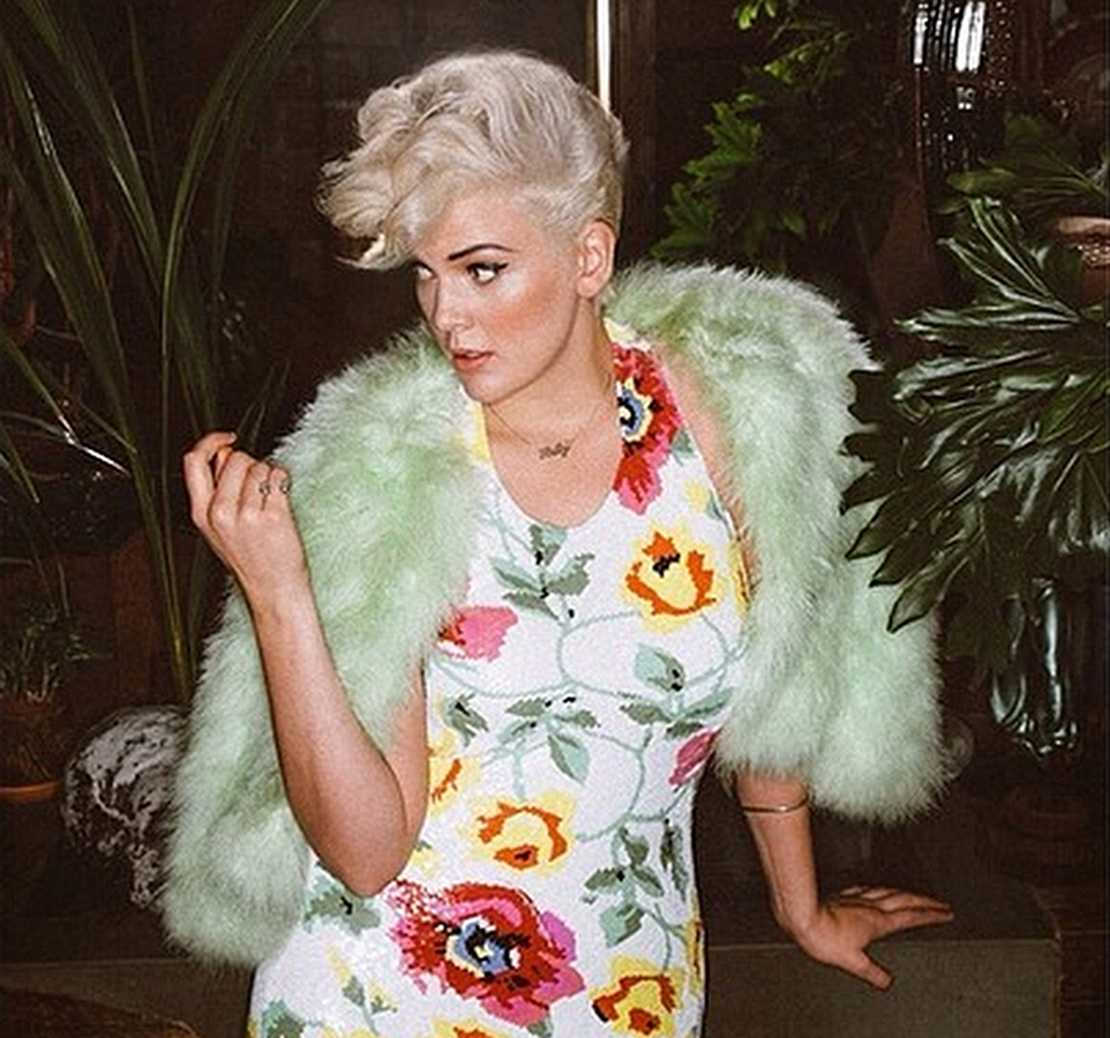
“The last year and a half has been a very intense boot camp of sorts.”—Betty Who ’13
Since leaving Berklee in the spring of 2013, Australia-born Betty Who (aka Jessica Anne Newham ’13), has gracefully handled a steep learning curve in touring protocols. She was playing small venues before the opportunity arose for her band to open for the Australian leg of Katy Perry’s Prismatic World Tour in the fall of 2014.
“When I started touring, I had no idea what I was doing,” Who wrote in an e-mail sent from somewhere down under during the Perry tour. “The last year and a half has been a very intense boot camp of sorts. But I’ve honestly been so lucky because I’ve had tough shows where not a lot of people showed up. But the level of support my friends and fans have given me is unprecedented. There’s no comparison between standing on stage in front of 80 people at a club in New York and standing on stages [as big as Katy Perry’s] and looking out into a sold-out arena that holds 21,000 people. Apples and oranges.”
Who assumed her stage name before releasing her first EP, The Movement, in April 2013. She was already garnering glowing reviews and riding the Billboard charts before her song “Somebody Loves You” became the soundtrack for a viral video featuring a flash mob dancing at a Home Depot documenting the proposal of a gay couple. Who and her team capitalized on the momentum and released a second EP, Slow Dancing, the following April. Her debut album Take Me When You Go on RCA followed in October 2014.
Ethan Schiff ’14, the cofounder of New Torch Entertainment with Nick Susi ’12, manages Who. He had already helped get her tour dates nationally before the video broke. “Betty was selling 150 to 200 tickets per night around the East Coast and we had been talking to labels for about six months before it all happened,” Schiff says. “The video definitely helped solidify things. We finalized our deal [with RCA] two days after it went viral.”
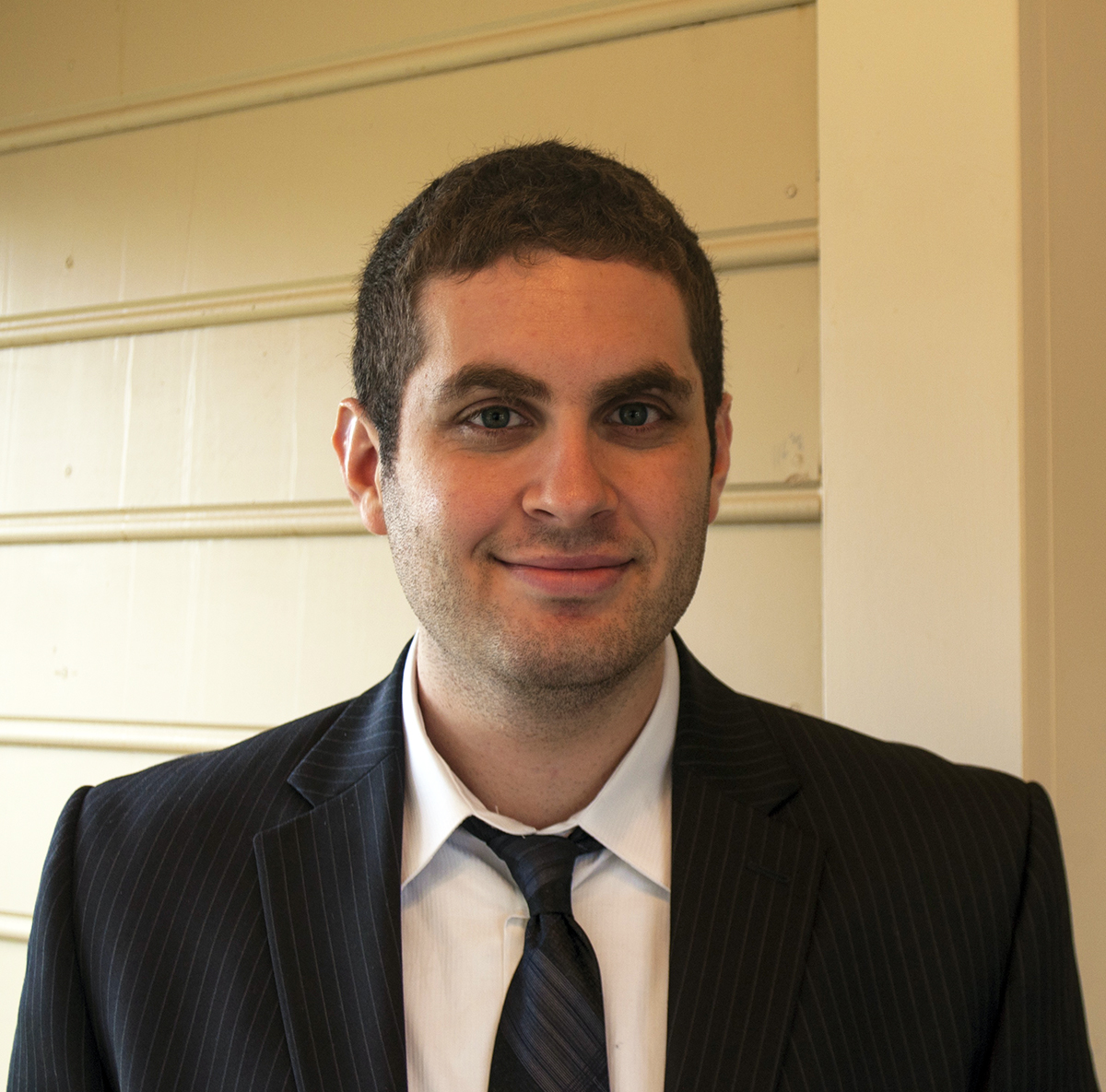
Ethan Schiff ’14
With steam building behind Who, Schiff reached out to contacts at RCA and in Katy Perry’s camp to secure a spot on the tour. “I’d been speaking with Katy’s management for about three to four months before they finally chose her for the tour,” Schiff says. Who’s fast-rising career is floating the boats of others who are part of Who’s Berklee network. Peter Thomas ’13 has cowritten extensively with Who and produced her recordings, and her band includes keyboardist Lauren Fuller ’13, bassist Jemila Dunham ’13, and drummer Derek Schurbon ’13.
Opening for Perry has had its rewards and challenges. “The upside is obviously the exposure,” Who says. “I walk into a room full of thousands of people every night who probably don’t know who I am and I have 35 minutes to convince every person in that room to remember my name and care about me. The downside is: you’re walking into a room where nobody knows you. There’s not a whole lot of energy to feed off of which makes the show a little harder. But I think people really have loved that I’m Australian and my label over here has been really excited about my potential at radio.”
Who and crew are building steadily on the successes they’ve experienced. On December 7, 2014, Who broke new ground by performing for Logo TV’s New Now Next awards broadcast. But touring will be her bread and butter.
“Touring is the top priority for us long term,” Schiff says. “That’s where she will make most of her money from performances and merch sales. It’s where she can authentically connect and grow her fan base.” Who states, “I think being a touring musician is one of the hardest career paths anyone could ever pick. It’s incredibly physically and emotionally taxing. After some shows, you can’t help but ask yourself if it’s really worth it. But even in those moments, the answer for me is still, ‘Yes it’s worth it.’”




